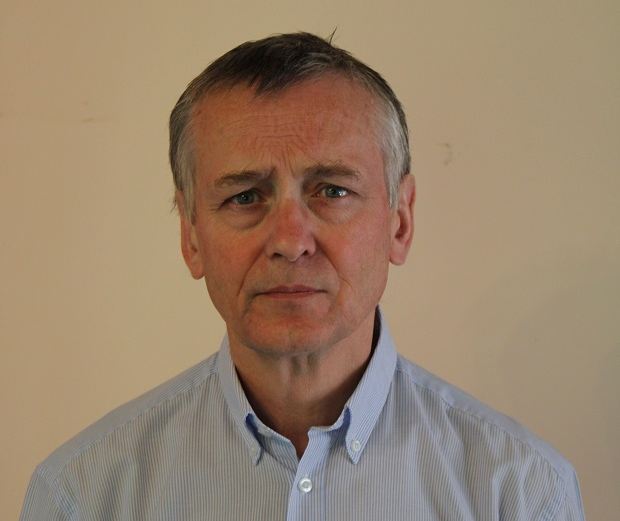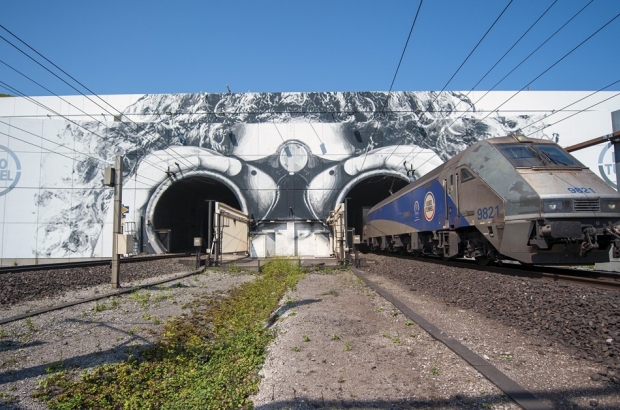- Daily & Weekly newsletters
- Buy & download The Bulletin
- Comment on our articles
Brussels-based British journalist “traumatised” after UK border police at Calais detain and question him under counter-terrorism act
Martin Banks, a British journalist in Brussels, was stopped and detained by the British police authorities at the Eurotunnel terminal in Calais on 26 February.
Travelling to the UK with his family for the half-term school holiday, he was interrogated for six hours about his journalistic activities by the UK Border Force under ‘Schedule 3 Counter-Terrorism and Border Security Act 2019’.
The 62-year-old British passport-holder has lived in Belgium since 2001. He is married to a Belgian and has two teenage children. Due to the coronavirus pandemic, it was their first trip to the UK in two years.
The experience has left him and his family traumatised and anxious about future trips to the UK, says Banks. He’s now seeking an explanation about why he was detained and reassurance that it will not happen again. He has filed an official complaint to the Home Office, written to the British Embassy in Belgium and is seeking advice from journalist organisations.
Banks recounts his experience to The Bulletin.

“It was about 9.30 when we arrived at the Eurotunnel terminal in Calais, a few days after the outbreak of the war in Ukraine. We were stopped as we were passing through UK Border Force control and I was escorted by three officers into the police station on the ‘British side’.
I was taken to a small room in the station where I was read my rights by an examining officer in the presence of another officer. I declined an invitation for legal representation as I did not know why I would need one and because my repeated questions about the nature of the police suspicions remained unanswered.
I was told I was being detained for questioning by the UK Border Force in charge of ‘hostile actors’ and ‘hostile acts’ under Schedule 3 of the Counter Terrorism and Border Security Act 2019. My wife and two children were in the car unaware of what was happening to me, although the vehicle was thoroughly searched and personal items taken away.
Over the course of the next six hours, the examining officer and his colleagues asked me hundreds of questions. These were mainly related to my journalistic work on the coronavirus pandemic, Ukraine and Russia, but also about each item collected from the car: a two-year old issue of the New York Times, dozens of articles printed from the internet, personal notes, etc. I was fully cooperative and voluntarily answered all the questions.
I was asked repeatedly about a press trip to Donbass in the Ukraine eight years ago around the time of Russia's annexation of Crimea – I volunteered the information to the police – and any ties I have with Russia (I didn't have any).
I also faced numerous questions about the independent UK-based communications company I work for, how it was financed and its “political policy”. I replied that I was just a journalist and did not have that sort of information. There were also questions about my colleagues, their names and titles. I was asked how I thought my reporting might "influence" policymakers and opinion makers. There were also intrusive questions about my personal finances and income and when I and my family next planned to visit the UK.
At one point I was taken to another part of the station where another officer took my DNA, numerous photographs from various angles and biometric fingerprints.
Police produced a copy of a New York Times, dated February 2020, containing an article about the pandemic, not written by me, and asked me questions about it. Several times, I was asked about a couple of my articles written around mid-2021, which were, in part, critical of the vaccine policy in the UK, as well as Belgium and the EU.
I was once again informed that the maximum period for detainment was six hours. When the six-hour mark was reached, I was told that I wouldn’t be arrested or charged. There was no further explanation.
The examining officer told me he would have to retain several possessions removed from my car for a maximum of seven days. These were my laptop, a Belgian mobile phone, a UK mobile phone, five DVDs containing family photos and a memory card for my camera.
Due to the seizure of the laptop, I couldn’t use it as planned while in the UK and I couldn’t make or receive phone calls. I also couldn’t take photos during my family holiday or use the DVDs as a gift for my daughter’s upcoming birthday.
On 3 March, I received a phone call from an officer who told him I could collect the seized items. On 6 March, on our due date for returning to Belgium, I collected the items from a police station, located close to the Eurotunnel at Folkestone.
This horrendous experience has left myself and my family traumatised and it remains unexplained by the British authorities. The deprivation of freedom for six hours of a British journalist could be deemed as an extremely serious attempt to curtail the freedom of the media and journalists, especially as my laptop was confiscated.
I readily and freely acknowledge that the border force has a "job to do" but in the context of this case I feel strongly that their approach was excessive and over-bearing. My current primary focus now is on trying to get some reassurance that this will not be repeated when we next visit the UK.”

















